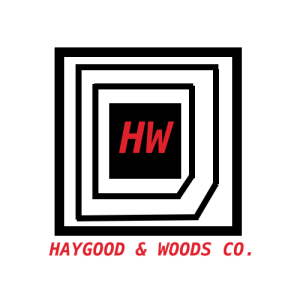Start-up & Medical Device Created by KIDS Georgia Members Win Big

Jake Haygood, 14, and Hampton Woods, 15, were the Popular Vote Winner at the 2016 Pediatrics 2040, a conference that seeks to explore the future of pediatric medicine. The two teenage boys are board members for the Kids and Families Impacting Disease Through Science (KIDS) Georgia Chapter, supported by the Atlanta Clinical & Translational Science Institute (ACTSI).
Haygood & Woods Co. devised a plan for a radio-frequency identification (RFID) wrist band that can store medical data, such as date of birth, medications, conditions, and the like. The data entered by healthcare providers is an effective means for passing on important information about the patient. This idea and subsequent start-up came through the collaboration and experience gained while working with the KIDS program. Prior to this project, Haygood, working as part of a team of students and graduate students at Georgia Tech, helped to create and code the app for AnemoCheck, a patient-operated, self-contained, disposable diagnostic test for anemia with a kit to easily check hemoglobin levels.
The RFID medical wrist band can be used in several scenarios, whether to inform first responders to possible allergies when patients are otherwise incapable of providing such information. By tagging a patient and writing out given medications and conditions, future healthcare professionals treating the same patient would be able to review the treatment history. Upon arrival to the final treatment facility, medical personnel would easily be able to review the report of medications and conditions. This is especially useful for those that go into cardiac arrest. “By utilizing the tag, responders would be able to write down the patient’s condition and the treatments that are provided, and future medical personnel would be able to review the prior medication and care provided to the patient,” said Haygood. In addition, the patient’s treatment history could also be uploaded to a healthcare charting system like Epic or Cerner, used by local hospitals.
The technology facilitating this improved communication is RFID. Each chip emits a distinct, unique identification number and can store data. RFIDs come in both active and passive form, the latter of which are powered through electromagnetic waves emitted from a scanner. Using this specific RFID type ensures that the product would be very light weight and inexpensive. “To prevent possible security threats, we suggest that the data on the patients’ RFID be encrypted with a key listed on the device, but not evident in plain sight,” said Woods.
Hosted by Children’s Hospital of Orange County (CHOC Children) in California, the second annual Pediatrics 2040 conference focused on trends and innovations for the next 25 years. The Innovation Beach session was one of the highlights of the conference and gave startup companies an opportunity to present their innovative healthcare products, ideas, or solutions to a panel of judges.
KIDS Georgia is led in-part by ACTSI’s Pediatrics program through its Pediatric Research Center at Children’s Healthcare of Atlanta, Egleston, Pfizer Pharmaceuticals, and Dunwoody Pediatrics, and is one of eight KIDS programs that is active across the U.S and five internationally. All KIDS programs are a part of the International Children’s Advisory Network (iCAN). KIDS is a collaboration between the American Academy of Pediatrics (AAP) Academy in Advances in Therapeutics and Technology, local AAP Chapters, children’s hospitals, universities, private pediatric groups, and local schools. The program focuses on understanding, communicating, and improving the process of medical innovation for children. By pairing acute or chronically ill children and parents with those who have participated in research, as well as healthy children who are interested in science/medicine, an advisory group is formed to create ideas and give feedback on how to improve the research process. This group focuses on learning, teaching, and advocating for medicine, research, and innovation that improves the health and well-being of children, ultimately providing input on research ideas, innovative solutions, and unmet pediatric needs and priorities. This will contribute to the design and implementation of clinical studies for children.
Haygood is co-technology officer on the junior board of KIDS Georgia, as well as the youth chairperson of the iCan international technology board. He is also part of the AnemoCheck team at Georgia Tech in the role of app development, a position suitable with his extensive background in self-taught programming in languages including C, C++, Arduino, Python, Vb.net, C#, html, R, Swift, Java, JavaScript, VBScript, and VB.net. Woods is a co-technology chair for the KIDS Georgia junior board. Through his leadership with iCan and KIDS Georgia, Woods was invited to present an abstract at the Pediatric Academic Societies conference in 2014 regarding pediatric assent, and was also a student leader at the iCan Research launch summit in Washington, DC. He has a strong interest in engineering, specifically biomedical, mechanical, aeronautical, and robotics. Both are members of the robotics team 7373 and attend Mount Paran Christian School in Kennesaw, GA.
ACTSI’s Pediatric Clinical Research Center at Egleston offers inpatient and outpatient space and provides valuable research implementation services for clinical researchers, including laboratory and nursing services. The ACTSI is a city-wide partnership between Emory University, Morehouse School of Medicine, and Georgia Tech and is one of a national consortium striving to improve the way biomedical research is conducted across the country. The consortium, funded through the National Center for Advancing Translational Sciences as one of the National Institutes of Health’s Clinical and Translational Science Awards, shares a common vision to translate laboratory discoveries into treatments for patients, engage communities in clinical research efforts, and train the next generation of clinical investigators. For more information on KIDS Georgia, please visit their website or email Stephanie Meisner, RN (Stephanie.meisner@choa.org).